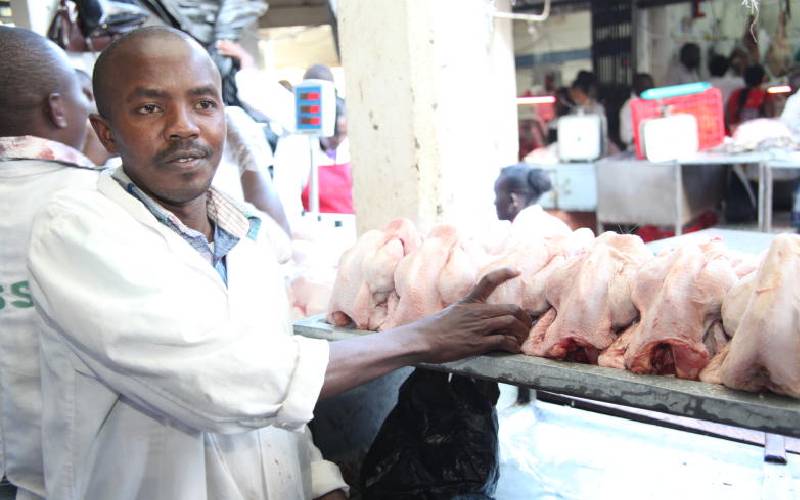
Denis Musungu, 26, was never scared when he resigned from his job as a hotel manager at one of Nairobi’s top enterprises and began selling chicken. Though his mother was not amused by this decision, Musungu’s delivery of 100 chickens to a metropolitan eatery was all it needed for the mother to alter her mind and embrace him. Musungu now makes KES640,000 from a small capital of KES60,000.
Market Research
The Kenya Institute of Management business management diploma graduate did a basic investigation on chicken availability in key cities and towns across the nation and observed that broilers were in surplus and cost less than free range chicken.
Having been raised in an area where only indigenous chickens were reared, he decided to start a chicken outsourcing business to address a lack of supply in the market. “I bid on a lot of tenders before Flamingo restaurant on Tom Mboya Street offered me an opportunity to provide 100 chickens twice a week,” stated the fledgling entrepreneur, who now supplies chicken to four restaurants in the city and a nearby grocery branch.
Returns on Investment
Musungu, who scours Vihiga County’s markets and villages for supplies, revealed that he buys a chicken for KES300-400 and sells it to his customers for KES600. “I deliver at least 400 chickens weekly valued at Sh160,000 from a basic capital of KES60,000,” he added.
Musungu uses public transit to deliver the chicken to Nairobi, where he has built up a chicken slaughterhouse because it is more economical and so saves money on transportation. “I have created a solid relationship with drivers and conductors of several buses working the Western Kenya route,” he stated.
His clientele wants previously butchered chicken with the health department and county government certificates. Aside from slaughtering my hens, I also rent out the facility to other city suppliers to help pay for maintenance and pay my six staff,” he reveals.
Conclusion
Poultry farming is a lucrative business in Kenya. It’s much better now that large restaurants and hotels have opened up. Kenyans are known to consume eggs and chicken meat, and there is never a lack of demand for poultry goods outside of restaurants and hotels.







